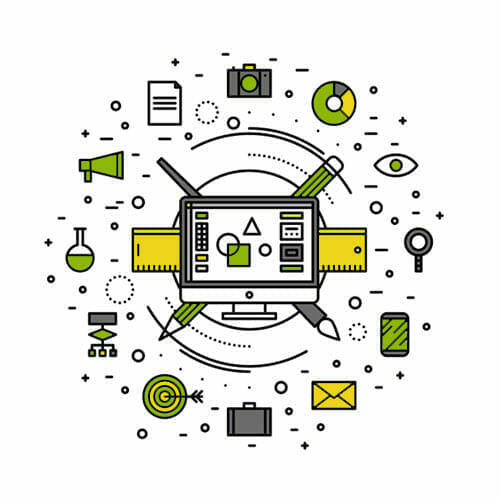What Is An Oscilloscope?
An oscilloscope is a device that is used to view oscillations of electric voltage or currents that is displayed on a screen. With an oscilloscope, you can view the oscillations as they change over time. These scopes are commonly used in testing electronic equipment and products prior to their release to consumers.
How Oscilloscopes Work
To get a proper reading on an oscilloscope, you need a compatible probe to your oscilloscope and a test point. The probe attaches to your oscilloscope and you place the other end of a probe on the test point.
Oscilloscopes measure frequency, how long the signal is on, rise and fall time, maximum and minimum voltage, the average voltage, and amplitude. You can view the shape of a wave and find its frequency, which helps determine a malfunction.
5 Details of Oscilloscopes
Here are a few details of oscilloscopes that you should note before making a purchase:
Find the Right Probe
The probe is the attachment used to perform the measurements. Each probe serves a different purpose, and the bandwidth of the probe should be the same as the oscilloscope.
Logic Probes
Logic probes are usually used to test digital circuits and indicate the state of the line. Logic probes are a basic tester so they can be used in many applications.
Current Probes
These probes do not have to be wired to a circuit to attain a measurement, so set up time is much shorter. Current probes do not have to shut down a circuit to check it.
Differential Probes
Differential probes measure differential signals. A common use is for disc drive signals. To find the measurement, you can place the probe on both lines of the signal and use the scope to combine the results.
Passive Probes
These are usually included with your scope, and are ideal for ground referenced measurements.
Analog or Digital?
Most people looking for a new oscilloscope are upgrading their scope from analog to digital. Feature wise, most digital scopes are superior to analog. Most manufacturers of oscilloscopes do not produce analog scopes, so you will have to look for used analog scopes. A used analog scope will be behind technologically, but will save you some money.
Connectivity
Now that you have your measurements, you need to convert those measurements into a document. Further analysis is available if you can connect your scope to your computer, and depending on the software you use, you can draw out specific information.
Triggering Ability
To properly stabilize repeating waveforms and get a single shot waveform, you will use trigger functions. Trigger functions are on the front panel of the oscilloscope. All digital oscilloscopes should have similar basic functions with different advanced options.
Bandwidth
Bandwidth of a scope is the maximum signal frequency that is capable of passing through the front end amplifiers. In simple terms, this is the scope’s ability to measure a signal. The larger the task is, the higher the bandwidth of your scope is needed. If bandwidth is too low, your scope will not be able to resolve changes that are high frequencies. The amplitude will be altered and you will not be able to obtain relevant information.
Can I Get a Second Hand Oscilloscope?
As mentioned, used analog scopes come at a lower price, although they are not technologically up to date. You can also get a viable used digital scope from a reputable producer in protocol analyzers.
Featured client/products:
Glass Floors | Semi Truck Ramp | Glass Blocks| SEO Services Near Me | Steel Yard Ramp | Ramp for Loading Dock | Glass Flooring | Loading Dock Ramps | Portable Yard Ramp | SEO Company Near Me | SEO Agency Akron | SEO Expert Near Me | Marketing Agencies Near Me | Marketing Agency Akron
Yard Ramps | Yard Ramp




